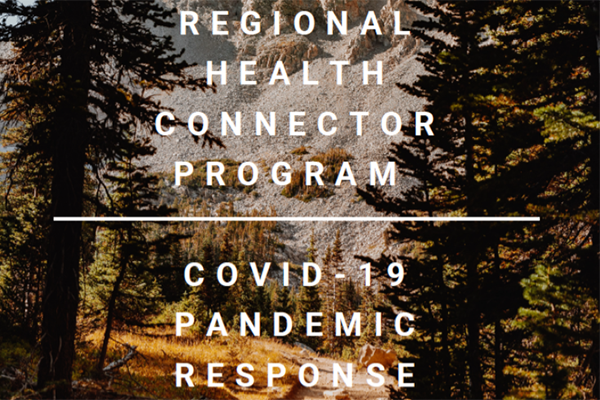Responding to the COVID-19 Pandemic
Regional Health Connectors (RHCs) are a workforce in Colorado that build and improve connections between primary care, public health and community organizations throughout the state. Since the program’s launch in 2016, RHCs have served as trusted local conveners working across Colorado to strengthen connections between the systems that keep us healthy. Like many in the public health and health care fields, the work of RHCs shifted dramatically in 2020 to respond to new and existing community needs exacerbated by the COVID-19 pandemic.
Beginning in April 2020 as the impacts of COVID-19 increased throughout communities, the RHC evaluation team began surveying RHCs on a regular basis to understand how their work as a critical workforce in Colorado was affected by and responded to the pandemic. Conducted through December 2020, the results of this survey come from the RHC workforce across the 21 Colorado Health Statistics Regions.
Major Findings
Social and economic barriers to health and related social needs were among the most common community and primary care issues that RHCs supported during the surveyed timeframe
Existing health inequities were exacerbated by the COVID-19 pandemic, evidenced by a lack of housing options for those experiencing housing insecurity and a heightened need for childcare, respite care services, and rental, utility,and financial assistance among community members.
RHCs were well-positioned to provide critical support to local emergency response efforts
RHCs continue to play a critical role in local COVID-19 response efforts. Over the course of the pandemic, RHCs have coordinated COVID-19 testing efforts and connected community organizations and members to testing sites; assisted with contact tracing; connected healthcare practices with personal protective equipment; and continue to support vaccine distribution.
RHCs remained successful in connecting partners to assist with community needs
Fulfilling a core function of their work, RHCs have connected primary care practices with local behavioral and mental health resources in addition to launching online COVID-19 resource lists for health clinics, hospitals, and communities.
